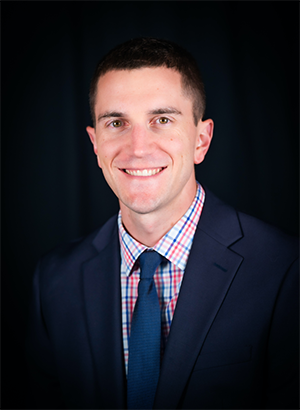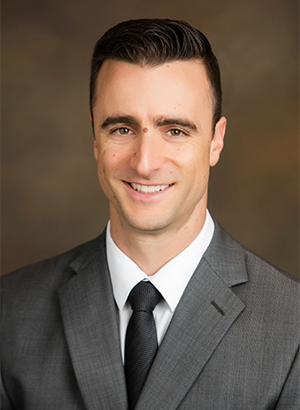Clinical Aspects of Expanding an ECMO Program During a Pandemic
By: John Hunninghake, MD, and Jeff DellaVolpe, MD
November 25, 2020
The pandemic caused by SARS-CoV-2 has placed significant stress on health-care systems around the world, especially intensive care units that are forced to rapidly increase capacity and accommodate a large number of critically ill patients requiring organ support, most notably mechanical ventilation. While a relatively small proportion of patients may require extracorporeal membrane oxygenation (ECMO), the absolute demand for this advanced therapy has exponentially increased when considering its relative scale during a worldwide pandemic. For the two Extracorporeal Life Support Organization (ELSO) Centers of Excellence in San Antonio, the pandemic has required rapid expansion in support of our local and regional hospital partners who suffered high case numbers during the surge in Texas. So what has it taken to expand our ECMO programs during a pandemic? Teamwork, coordination, and...a playbook.
The dedication of our programs’ leadership to develop the ECMO programs in the past 5 years has ultimately established the foundation to respond to the ongoing need of this pandemic. A successful program relies on a dedicated team that strategically builds the resources, personnel, and culture of the program. Close relationships with administrative and civic leaders ensure constant dialogue through open channels of communication. Experienced ECMO clinical personnel and program coordinators provide the logistical backbone and supervision during the continuous training process for new ECMO specialists. All these components contributed to the framework of ECMO programs that could respond to the crisis that unfortunately presented itself this year.
For our pandemic playbook, we adhered to the core tenet from the ELSO COVID-19 Interim Guidelines published in April 2020: Maximize benefit. We believe maximal benefit should focus first on the clinical outcomes of the patient, while ensuring that the staff and the program remain safe and are equipped to provide the best care possible. By maintaining our attention to safety and quality, we were able to maintain a high standard of clinical care, consistent with pre-pandemic times. The key strategic considerations are aligned with the ELSO guidelines, including Personnel, Equipment, Facilities, System, and Ethics. Attention to these considerations have been even more important in the pandemic setting, where resources have been more limited, understanding of the disease process is constantly evolving, and administrative support is less concrete due to the surrounding uncertainty.
Personnel
Staffing an ECMO program is an ongoing challenge, even in the pre-pandemic era. Our most valuable resource is our staff, especially trained perfusionists, nurses, and respiratory therapists. Our ECMO programs adjusted the staffing ratio to optimize safe patient care with the right number of nurses. While one program adjusted the ECMO-specialist-to-patient ratio up to 1:3, the other program utilized a ratio of up to 1:4. These ratio adjustments were intermittently utilized in the pre-pandemic era to confirm safety and feasibility. Additionally, as more nurses received ECMO training before the pandemic, they became more comfortable with caring for a patient undergoing ECMO in the bedside nursing role when the ECMO-specialist-to-patient ratios were adjusted.
Equipment
Over the years, our ECMO programs developed a stable resource supply chain and adequately maintained our equipment. However, as many ECMO centers around the world attempted to rapidly expand during the early months of the pandemic, there was a crunch for pumps and circuits at one program, requiring improvisation and resource sharing. Examples included splitting centrimags, using alternate oxygenators (Euroset), and improvising carts and blenders. There was great intracity collaboration as one program lent pumps to the other program.
Facilities
Patients undergoing ECMO are traditionally managed in locations where the clinical care team is most prepared to care for them, typically a cardiothoracic ICU or a trained medical ICU. COVID challenged this paradigm by forcing hospitals across the country to expand ICU care into nontraditional ICU spaces. While this shift in both paradigm and physical location demonstrated the ability of our ECMO teams to care for patients in nontraditional spaces, these new environments did not come without challenges. For example, expanding into one large space in the Postanesthesia Care Unit (PACU) improved the situational awareness of the nursing staff and ECMO specialists but resulted in downstream effects to the infection control practices. Similar to other institutions, there was a single entry for donning and doffing in to the open-bay PACU; however, clinical care teams had to wear an additional washable gown over the PPE to prevent cross-contamination for non-COVID infections while performing clinical care amongst patients. Ultimately, success centered on regular communication and utilizing well-trained ECMO specialists and bedside nurses alongside an adaptive leadership.
System
Discussions about the capacity of our local and national military health system were framed around how to maximize the resource-to-benefit ratio when uncertainty surrounded the future demand or resource availability. With time and diligent discussion, we collaboratively determined our capacity standards on a local level with ongoing daily discussions about changing environments and personnel availability. Subsequently, we referred to the ELSO COVID-19 Interim Guidelines to help determine patient selection, acceptance criteria, and COVID-19 vs non-COVID-19 situations.
Ethics
Patients can survive to hospital discharge after months on VV-ECMO. In a pandemic with potential resource limitations, patient selection and timing of discontinuation for ECMO support pose significant ethical and moral challenges compared to pre-pandemic times. For our programs, we continually reassessed our patient selection criteria for initiating ECMO to identify those patients that would benefit the most and have the highest chance of survival. Generally, we adhered to the ELSO Guidelines with a focus on younger patients with single-organ failure and no comorbid conditions; however, we assessed all patients on a case-by-case basis. Fortunately, outcomes have been successful to date with a 79% survival-to-decannulation and 67% survival-to-discharge, which both align with published national averages for patients with COVID-19 requiring ECMO. A close connection with the hospital ethics committee and palliative care team can assist with the frequent ethical dilemmas that arise.
In conclusion, the expansion of our programs allowed the provision of high-quality ECMO care to those who may benefit most while being cognizant of available resources and maintaining an environment of patient and staff safety. Preparation for this moment has occurred for many years, through dedicated and incremental steps that demonstrated the capability and viability of our programs with more than favorable outcomes. We hope that sharing a piece of our experience can guide other programs that are striving to grow.
DISCLAIMER: The view(s) expressed herein are those of the author(s) and do not reflect the official policy or position of Brooke Army Medical Center, the US Army Medical Department, the US Army Office of the Surgeon General, the Department of the Air Force, the Department of the Army, the Department of Defense, or the US government. One of the authors is an employee of the US government. This work was prepared as part of his official duties and, as such, there is no copyright to be transferred.

John Hunninghake, MD, is a pulmonary, critical care, and ECMO physician, Chief of the BAMC Simulation Center at the Brooke Army Medical Center in San Antonio, Texas, and an Assistant Professor of Medicine at the Uniformed Services University.

Jeff DellaVolpe, MD, is a critical care/ECMO physician and Director of the ECMO Program at Methodist Hospital System in San Antonio, Texas.